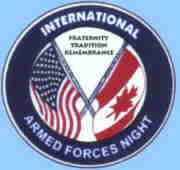Czerwone Maki na Monte Cassino
Official Lyrics
Czerwone maki na Monte Cassino
Zamiast rosy piły polską krew...
Po tych makach szedł żołnierz i ginął,
Lecz od śmierci silniejszy był gniew!
Przejdą lata i wieki przeminą,
Pozostaną ślady dawnych dni!..
I tylko maki na Monte Cassino
Czerwieńsze będą, bo z polskiej wzrosną krwi.
English Translation
Red poppies on Monte Cassino,
Instead of dew, drank Polish blood.
As the soldier crushed them in falling,
For the anger was more potent than death.
Years will pass and ages will roll,
But traces of bygone days will stay,
And the poppies on Monte Cassino
Will be redder having quaffed Polish blood.
During World War II, Feliks Konarski served with General
Władysław Anders' Polish Second Corps in Italy. There, on
the eve of the Poles' victorious storming of Monte Cassino,
he wrote the unforgettable and moving anthem, Czerwone
maki na Monte Cassino text and music (The Red Poppies
on Monte Cassino).
This song, set to music by Alfred Schuetz on that night,
became Konarski's most famous composition, served to
maintain his compatriots' spirits in one of Poland's darkest
hours, and after the war was banned in Poland under
communist rule. The song became an unofficial anthem and many people stood at attention when it was played.
In 1965, Konarski settled permanently in Chicago. He organized Polish cultural activities and had a radio show called Czerwone maki (Red Poppies) for over twenty years that was also broadcast in New York City. He also continued to sing and perform on many stages in England, France, and the U.S.
He added a fourth verse to his Czerwone maki na Monte Cassino song in 1969, on the twenty-fifth anniversary of the battle. It is less known than the original version.
His dream was to see an independent Poland. Konarski witnessed when Poland returned to a free nation after undergoing political and structural reforms. He was to visit his homeland, but died in Chicago the day before he was to arrive in Poland.
Konarski was always a Pole and patriot, who preached Poland's unbending right to freedom and self determination. For his attitude for the nation's independence and for cultivating Polish culture in exile, he was twice awarded the Order of Polonia Restituta (Knight's Cross and Commander's Cross), first by the President of Poland in exile, and then posthumously.


